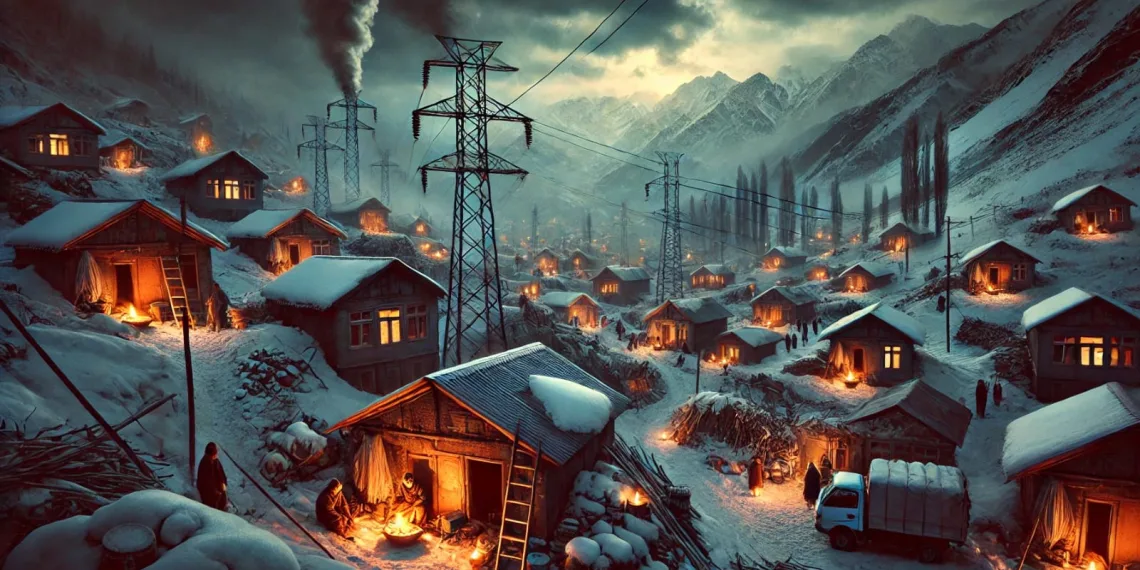Karnah: The residents of Karnah are facing a severe electricity crisis as they receive only four hours of power in a 24-hour period. This situation has caused widespread distress among locals, who are now protesting against the Power Development Department (PDD).
Both Teetwal and Tangdhar blocks are experiencing an 80% reduction in electricity supply, despite a 15% increase in demand during the winter season. Previously, the Teetwal block was powered by the Pungla Hari Dal hydroelectric project, which operated at a reduced capacity of 1 megawatt. However, this project has now ceased to function, and the block is currently dependent on the Armpora Grid Station, similar to the Tangdhar block.
Residents report that electricity supply has reached its worst-ever state this month. In some villages, when electricity is available, the voltage is so low that candles are needed to verify whether the bulbs are lit.
This electricity crisis has disrupted the lives of many, particularly students who cannot study at night and traders whose businesses rely on electricity. Online official tasks, such as Aadhaar updates and DOB applications, are also delayed due to frequent outages.
In addition to the supply issues, the power transmission system is in poor condition. Many villages still rely on makeshift poles to hold electric wires, and the transformers installed decades ago are unable to meet current demand. Villages requiring 100 kVA transformers still operate with 60 kVA units, leading to frequent overloading and further inconvenience.
Adding to their troubles, many residents are frustrated with the online bill payment system. While some manage to pay their bills online, others—who lack smartphones or access to notifications from the PDD—are unable to pay. They have expressed concerns about the accumulation of unpaid bills and are demanding that paper bills be delivered to their homes, as was previously the practice.
The residents of Karnah are urging the government and PDD to address these issues immediately to provide relief during the harsh winter season.


